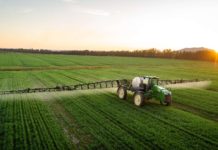By Mark Wilson, Chief Executive Officer, SYSPRO EMEA&I
Packaging is something consumers seldom think about, yet it is a critical enabler for much of our lives – it creates cost-efficient delivery systems for retailers and brands, minimises product breakage and food waste throughout the value chain, and facilitates the consumer’s need for convenience.
One of the biggest emerging trends in packaging manufacturing is the global focus on sustainability and a switch to biodegradable packaging materials. As consumers become more aware of the negative consequences of single-use plastic packaging, they are demanding eco-friendly alternatives such as starch, cellulose, PLA, polyhydroxybutyrate (PHB), polyhydroxyalkanoates (PHA), and other biopolymers, and other plant-based packaging from sugar cane, coconut, hemp and corn starch.
Demand is consumer-led
With the massive uptake of online shopping during the COVID-19 pandemic, the waste created by packaging from online shopping has come into the spotlight. McKinsey & Partners notes that a dramatic shift to online shopping, increased global regulation of packaging waste, and the acceleration of consumers’ sustainability concerns have combined to reinforce the rapid pace of change.
With increasing consumer pressure on companies to adopt sustainability measure throughout the product lifecycle, packaging materials represent a significant opportunity for companies to deliver effective packaging systems that also happen to support sustainability goals. It’s no surprise then, that the packaging industry is adopting sustainable solutions that make product packaging more consumer- and environmentally friendly.
The problem with plastics…
Since the early 20th Century, plastic has been the most popular packaging material, with the ubiquitous bubble wrap almost omnipresent in packaging of products and materials. It’s no surprise that plastics have long been the material of choice – they are durable, lightweight and cost-effective. However, there are plenty of negatives to single-use packaging that is difficult to recycle effectively. Plastics are major pollutants, and it can take up to 1,000 years for plastic to biodegrade. Research shows that eight million tonnes of plastic leak into the ocean every year. Furthermore, the Moss Group review of Biodegradable and Compostable Packaging shows that locally, formal municipal waste collection is not effective in capturing all post-consumer waste, while separation at source is not legislated, so is not widely practiced.
The negative environmental impact and increasing awareness about the importance of sustainable packaging are pushing brands and customers to adopt biodegradable packaging materials. The desire for alternatives that deliver lower environmental impact than traditional plastics has created a growing market for biodegradable and compostable packaging. And while biodegradable packaging currently carries higher costs than traditional plastic packaging materials, research by McKinsey shows that 55% of consumers are concerned about the environmental impacts of packaging, and 70% of buyers would pay more for sustainable packaging.
The benefits of biodegradable packaging
The most important benefit of biodegradable packaging is the potential to reduce overall waste in the food industry. Instead of discarding tons of plastic to languish in landfills (or oceans) for decades, biodegradable food packaging naturally and completely degrades.
Locally, South African packaging manufacturers have joined an industry collaboration of packaging producers, brand owners, retailers, recyclers, governments and nongovernmental organisations to tackle plastic packaging waste by creating a circular economy for plastics with the SA Plastics Pact. There is an increasing drive toward reducing the amount of plastic packaging, eliminating problematic packaging types, increasing post-consumer collection and recycling and transitioning away from petrochemical-based materials to more sustainable alternatives. The desire for alternatives that deliver lower environmental impact than traditional plastics has created a growing market for biodegradable and compostable packaging.
There are challenges
Sustainable packaging still has a way to go before it becomes widely embraced and an affordable alternative to plastic packaging. The technology has not yet scaled to the level of mass adoption. Globally, the cost of biodegradable and compostable materials is currently substantially higher than traditional, petrochemical-based polymers in many cases, but this is expected to decrease as volumes increase.
Sustainable packaging materials also need to perform as well as traditional non-sustainable packaging materials, not only to meet consumer expectations, but in managing food waste and damage in the supply chain.
Another challenge of sustainable packaging production is reducing virgin material and increasing recycled content: With recycling systems worldwide struggling to keep up with the volume of materials to process, packaging manufacturers should prioritise solutions that address the packaging problem at the source by setting virgin material reduction targets and increasing post-consumer recycled content. Optimising supply chain and materials management is important here.
Harnessing technology to meet sustainability goals
Technology plays a key role in helping packaging manufacturers meet sustainability targets. Flexible ERP management tools and systems can help manufacturers boost operational efficiency and quicky respond to evolving customer demands as well as changing regulations and market trends.
Optimising materials management is key in producing sustainable packaging. Systems like Materials Requirements Planning can reduce waste and fulfil reporting requirements for waste and recycling regulations, and built-in business intelligence reporting can improve visibility into buying and supplier trends with value stream analysis.
ERP tools can also help manufacturers meet industry standards for the sustainable manufacturing of packaging materials, gaining control over scrap, yield and rework metrics while meeting the industry standards for the sustainable manufacturing of packaging materials.
Having a refined business system in place that governs every aspect of the workflow will reduce loss, increase productivity, and maximise profits while still allowing growing businesses to scale.








